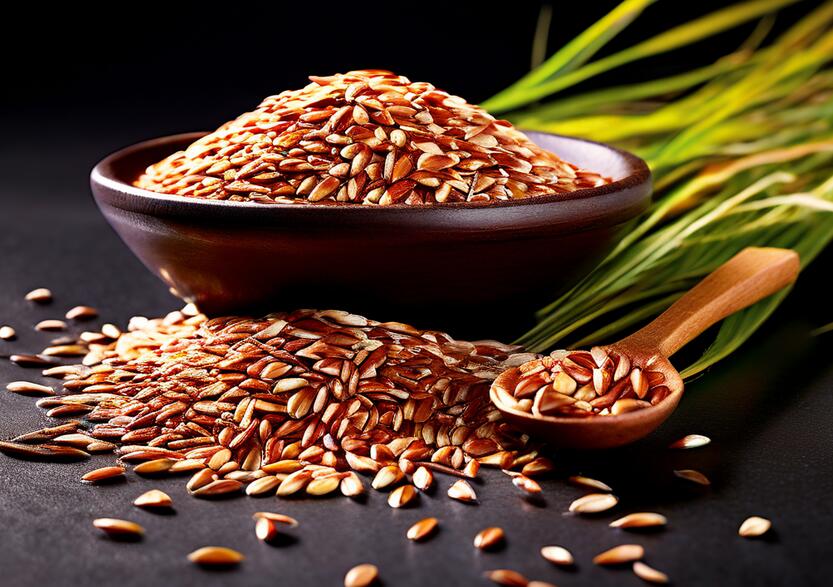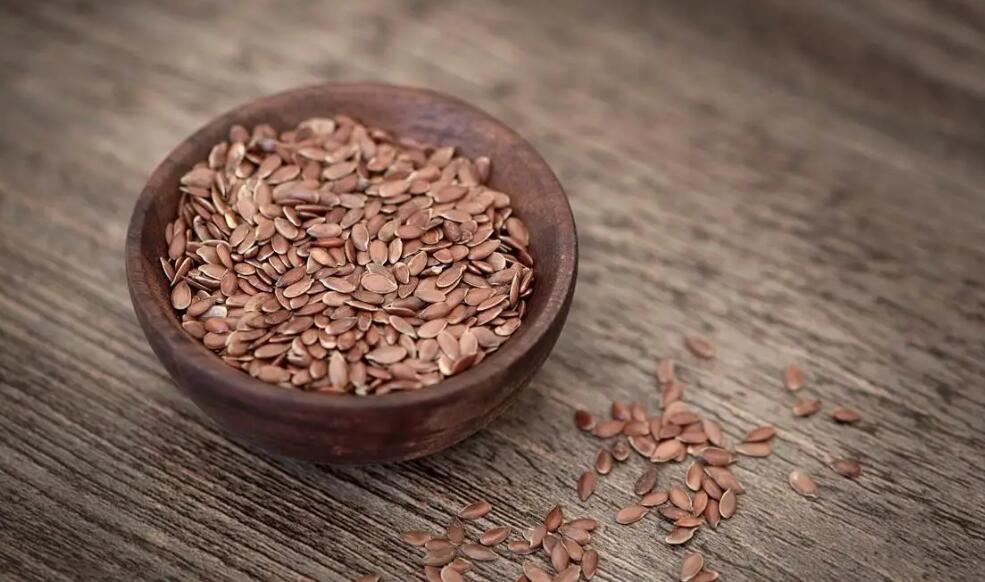Flaxseed has gained popularity as a superfood, thanks to its impressive nutritional profile and numerous health benefits. But how much flaxseed per day is best for you? Understanding the right dosage is crucial to maximize its benefits while avoiding potential side effects. In this article, we’ll discuss how much flaxseed per day Is best for you and how to incorporate it into your diet.
What is Flaxseed?
Flaxseed, also known as linseed, is derived from the flax plant (Linum usitatissimum). It has been cultivated for thousands of years and was initially used for its fiber to make linen. Today, flaxseed is celebrated for its nutritional value and health benefits.
Flaxseed is rich in omega-3 fatty acids, particularly alpha-linolenic acid (ALA), fiber, and lignans—a type of phytoestrogen with antioxidant properties. These components make flaxseed a powerful addition to a healthy diet.
| Nutrient | Amount per 1 tablespoon (7 grams) |
|---|---|
| Calories | 37 |
| Protein | 1.3 grams |
| Fat | 3 grams |
| Carbohydrates | 2 grams |
| Fiber | 1.9 grams |
| Omega-3 fatty acids | 1.6 grams |
| Lignans | 75.5 mg |
Source: USDA National Nutrient Database
Flaxseed is available in various forms, including whole seeds, ground flaxseed meal, and flaxseed oil. Each form offers different benefits and uses in cooking and baking.

How Much Flaxseed per Day Is Best for You?
The recommended daily intake of flaxseed varies depending on age, gender, and individual health goals. Here are some general guidelines:
1. Adults
For adults, a common recommendation is to consume 1-2 tablespoons of ground flaxseed per day. This amount provides a good balance of omega-3 fatty acids, fiber, and lignans without overloading the digestive system.
It’s important to note that flaxseed should be consumed ground rather than whole, as whole flaxseed can pass through the digestive system undigested, reducing its nutritional benefits.
2. Children
For children, the recommended intake is lower. 1-2 teaspoons of ground flaxseed per day is generally considered safe and beneficial. It’s important to introduce flaxseed gradually and monitor for any adverse reactions.
When introducing flaxseed to children, it’s best to start with a small amount, such as 1/2 teaspoon per day, and gradually increase the dosage as tolerated.
3. Pregnant and Breastfeeding Women
Pregnant and breastfeeding women can benefit from flaxseed’s nutritional properties, but it’s essential to consult with a healthcare provider before adding it to their diet. Typically, 1 tablespoon of ground flaxseed per day is considered safe, but individual recommendations may vary.
Some studies suggest that consuming flaxseed during pregnancy may help reduce the risk of preterm birth and low birth weight. However, more research is needed to confirm these benefits.
Factors to Consider When Determining Flaxseed Dosage
1. Individual Health Goals
Your health goals play a significant role in determining the right flaxseed dosage. For example, if you’re looking to improve heart health, you might aim for the higher end of the recommended range. If you’re focusing on digestive health, a moderate amount may suffice.
Here are some specific health goals and the corresponding flaxseed dosage recommendations:
- Heart health: 2-3 tablespoons per day
- Digestive health: 1-2 tablespoons per day
- Hormonal balance: 1-2 tablespoons per day
- Weight management: 2-3 tablespoons per day
2. Existing Health Conditions
Certain health conditions may require adjustments to your flaxseed intake. For instance, individuals with diabetes should monitor their blood sugar levels when consuming flaxseed, as it can affect glucose metabolism. Those with high cholesterol may benefit from a higher intake to help lower cholesterol levels.
If you have any existing health conditions, it’s essential to consult with a healthcare provider before adding flaxseed to your diet. They can provide personalized recommendations based on your specific needs and medications.
3. Dietary Preferences and Restrictions
Your dietary habits and preferences also influence how much flaxseed you should consume. If you’re following a plant-based diet, flaxseed can be an excellent source of omega-3 fatty acids. However, if you have a sensitive digestive system, you may need to start with a smaller amount and gradually increase your intake.
If you have any dietary restrictions, such as a gluten-free diet, it’s important to choose flaxseed products that are certified gluten-free to avoid cross-contamination.

Top 12 Health Benefits of Flaxseed
1. Rich in Omega-3 Fatty Acids
Flaxseed is one of the best plant-based sources of omega-3 fatty acids, particularly alpha-linolenic acid (ALA). Omega-3s are essential for maintaining heart health, reducing inflammation, and supporting brain function. Just one tablespoon of ground flaxseed contains about 1.8 grams of omega-3s. These fatty acids are also crucial for the development and function of cell membranes throughout the body.
ALA, the type of omega-3 found in flaxseed, is converted by the body into EPA and DHA, the same types of omega-3s found in fatty fish like salmon. While the conversion rate is relatively low, consuming flaxseed regularly can still significantly contribute to your overall omega-3 intake, especially for those following a plant-based diet.
2. High in Fiber
One of the most notable benefits of flaxseed is its high fiber content. A single tablespoon of ground flaxseed provides about 2 grams of dietary fiber, which is 8% of the daily recommended value. Fiber is crucial for maintaining digestive health, promoting regular bowel movements, and keeping you feeling full and satisfied.
Flaxseed contains both soluble and insoluble fiber. Soluble fiber dissolves in water and forms a gel-like substance in the digestive tract, helping to slow down digestion and stabilize blood sugar levels. Insoluble fiber, on the other hand, does not dissolve in water and helps add bulk to the stool, promoting regular bowel movements and preventing constipation.
3. Supports Heart Health
The combination of omega-3 fatty acids and fiber in flaxseed makes it a powerful ally for heart health. Studies have shown that consuming flaxseed regularly can help lower blood pressure, reduce inflammation, and decrease the risk of heart disease. The lignans in flaxseed also have antioxidant properties that protect against oxidative stress and damage to blood vessels.
One study published in the journal Hypertension found that consuming 30 grams of milled flaxseed daily for six months significantly reduced systolic and diastolic blood pressure in individuals with hypertension.
4. May Help with Weight Management
Thanks to its high fiber content, flaxseed can be a valuable tool for weight management. Fiber helps you feel full and satisfied, reducing the likelihood of overeating. Additionally, the healthy fats in flaxseed can help regulate appetite hormones, further supporting weight control efforts.
A study published in the Journal of Nutrition found that consuming 30 grams of flaxseed daily for 12 weeks resulted in significant reductions in body weight, BMI, and waist circumference in overweight and obese individuals. The study also found that flaxseed consumption improved insulin sensitivity and reduced inflammation.Both of which are important factors in weight management.
5. Promotes Digestive Health
Flaxseed is a fantastic source of both soluble and insoluble fiber, which are essential for maintaining a healthy digestive system. Soluble fiber helps soften stool and promotes regular bowel movements, while insoluble fiber adds bulk to the stool and helps prevent constipation. The mucilage in flaxseed also has a soothing effect on the digestive tract.
Consuming flaxseed regularly may help alleviate symptoms of digestive disorders like irritable bowel syndrome (IBS) and diverticulitis. A study published in the Journal of Ethnopharmacology found that consuming flaxseed mucilage daily for four weeks significantly improved symptoms of constipation in individuals with chronic constipation.
6. May Reduce Cancer Risk
The lignans in flaxseed have been shown to have potential anti-cancer properties. These plant compounds act as phytoestrogens, which can help balance hormone levels and may reduce the risk of hormone-sensitive cancers like breast cancer. Some studies have also suggested that flaxseed may help protect against colon and prostate cancer.
A meta-analysis published in the journal Nutrients found that consuming flaxseed was associated with a reduced risk of breast cancer, particularly in postmenopausal women. Another study published in the journal Cancer Causes & Control found that consuming flaxseed regularly was associated with a reduced risk of colorectal cancer.
7. Supports Healthy Skin and Hair
The omega-3 fatty acids in flaxseed are not only good for your heart but also for your skin and hair. These healthy fats help keep skin moisturized and supple, reducing the appearance of fine lines and wrinkles. They also contribute to the strength and shine of your hair, promoting healthy hair growth.
Flaxseed oil can be applied topically to the skin and hair for added benefits. It can help soothe dry, irritated skin and may even help reduce the severity of skin conditions like eczema and psoriasis. When applied to the hair, flaxseed oil can help nourish and strengthen hair follicles, reducing breakage and promoting healthy hair growth.
8. May Help Manage Blood Sugar
Flaxseed may be beneficial for individuals with diabetes or those looking to manage their blood sugar levels. The high fiber content of flaxseed helps slow down the absorption of sugar in the bloodstream, preventing spikes in blood glucose levels. Some studies have also suggested that the lignans in flaxseed may improve insulin sensitivity.
A study published in the journal Nutrition & Metabolism found that consuming flaxseed daily for 12 weeks significantly improved glycemic control and reduced insulin resistance in individuals with type 2 diabetes.
9. Boosts Immune Function
The lignans in flaxseed have been shown to have immune-boosting properties. These plant compounds have antioxidant and anti-inflammatory effects that help protect the body against oxidative stress and support overall immune function. Incorporating flaxseed into your diet may help keep your immune system strong and resilient.
A study published in the journal Phytomedicine found that consuming flaxseed lignans daily for six weeks significantly increased natural killer cell activity, which is an important component of the immune system.
10. May Alleviate Menopausal Symptoms
For women going through menopause, flaxseed may offer some relief from common symptoms like hot flashes and mood swings. The lignans in flaxseed act as phytoestrogens, which can help balance hormone levels and reduce the severity of menopausal symptoms. Some studies have found that consuming flaxseed regularly may decrease the frequency and intensity of hot flashes.
A study published in the Journal of the Society for Integrative Oncology found that consuming 40 grams of flaxseed daily for six weeks significantly reduced the severity and frequency of hot flashes in postmenopausal women with a history of breast cancer.
Another study published in the journal Menopause found that consuming flaxseed daily for 12 weeks significantly improved quality of life and reduced the severity of menopausal symptoms in postmenopausal women.
11. Supports Bone Health
Flaxseed may also play a role in supporting bone health. The omega-3 fatty acids and lignans in flaxseed have been shown to help maintain bone density and reduce the risk of osteoporosis. Additionally, the magnesium and phosphorus found in flaxseed are important minerals for building and maintaining strong bones.
A study published in the Journal of Nutrition and Metabolism found that consuming flaxseed daily for 12 weeks significantly increased bone mineral density in postmenopausal women with osteopenia.
12. Versatile and Easy to Incorporate
One of the best things about flaxseed is how easy it is to incorporate into your diet. Ground flaxseed can be added to smoothies, oatmeal, yogurt, baked goods, and even savory dishes like meatballs or veggie burgers. You can also use flaxseed oil as a base for salad dressings or drizzle it over roasted vegetables for a nutrient boost.
It’s important to note that flaxseed should be consumed ground rather than whole, as the body has a difficult time breaking down the tough outer shell of whole flaxseeds. Grinding the seeds helps to release their beneficial nutrients and makes them easier to digest. You can purchase pre-ground flaxseed or grind whole seeds in a coffee grinder or high-speed blender.

How to Incorporate Flaxseed into Your Diet?
Now that you know the incredible health benefits of flaxseed, you may be wondering how to easily incorporate it into your daily diet. Here are some simple and delicious ways to add flaxseed to your meals:
- Smoothies: Add a tablespoon of ground flaxseed to your favorite smoothie recipe for a nutrient boost.
- Oatmeal and Yogurt: Sprinkle ground flaxseed over hot or cold cereal, oatmeal, or yogurt for added fiber and omega-3s.
- Baked Goods: Mix ground flaxseed into muffins, breads, pancakes, and cookies for a healthy twist on baked goods.
- Salads: Sprinkle ground flaxseed over salads for added crunch and nutrition. You can also incorporate flaxseed oil into homemade salad dressings.
- Coatings: Use ground flaxseed mixed with spices as a coating for proteins like chicken, fish, or tofu before baking or pan-frying.
- Egg Substitute: Combine ground flaxseed with water to create a vegan egg substitute for recipes.
- Nut Butter: Mix ground flaxseed into your favorite nut butter for an extra nutrient boost.
It’s important to note that flaxseed should be consumed ground rather than whole, as the body has a difficult time breaking down the tough outer shell of whole seeds.
You can purchase pre-ground flaxseed or grind whole seeds in a coffee grinder or high-speed blender at home. Store ground flaxseed in an airtight container in the refrigerator to maintain freshness.
Frequently Asked Questions (FAQs)
1. Can I eat flaxseed every day?
Yes, you can eat flaxseed every day. Consuming 1-2 tablespoons of ground flaxseed daily is generally safe and beneficial for most people.
2. Is it better to eat flaxseed in the morning or at night?
There is no specific time of day that is best for consuming flaxseed. You can incorporate it into your diet at any time that is convenient for you.
3. How should I store flaxseed?
Store flaxseed in an airtight container in a cool, dark place. Ground flaxseed should be kept in the refrigerator to preserve its freshness and nutritional value.
4. Can I take flaxseed supplements instead?
Flaxseed supplements are available, but it’s generally better to consume whole or ground flaxseed to get the full range of nutrients, including fiber.
5. What are the signs of consuming too much flaxseed?
Signs of overconsumption include digestive issues such as bloating, gas, and diarrhea. If you experience these symptoms, reduce your intake and consult a healthcare provider if necessary.






